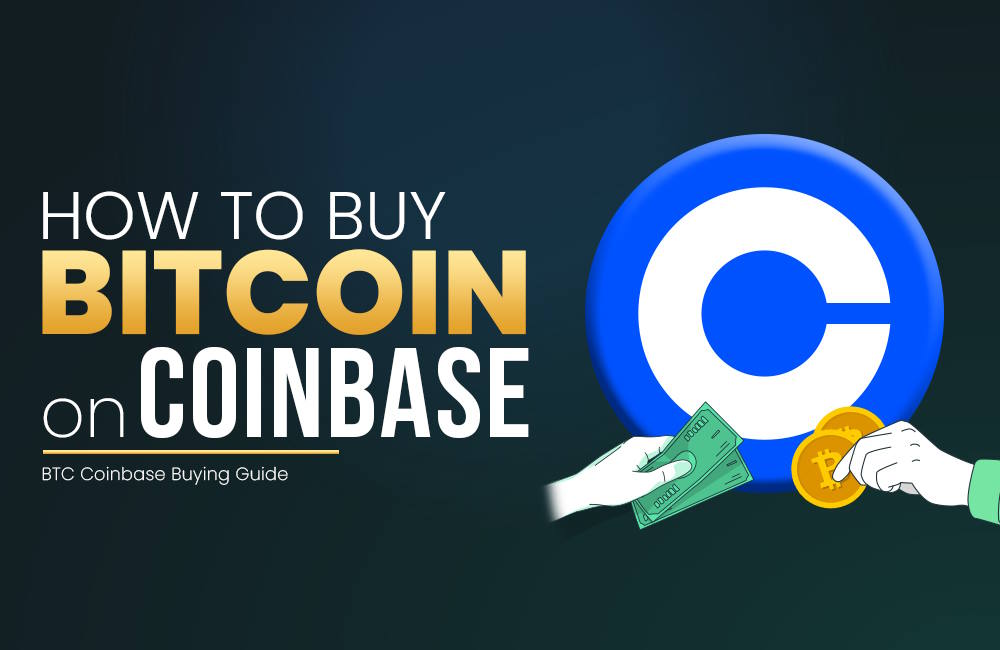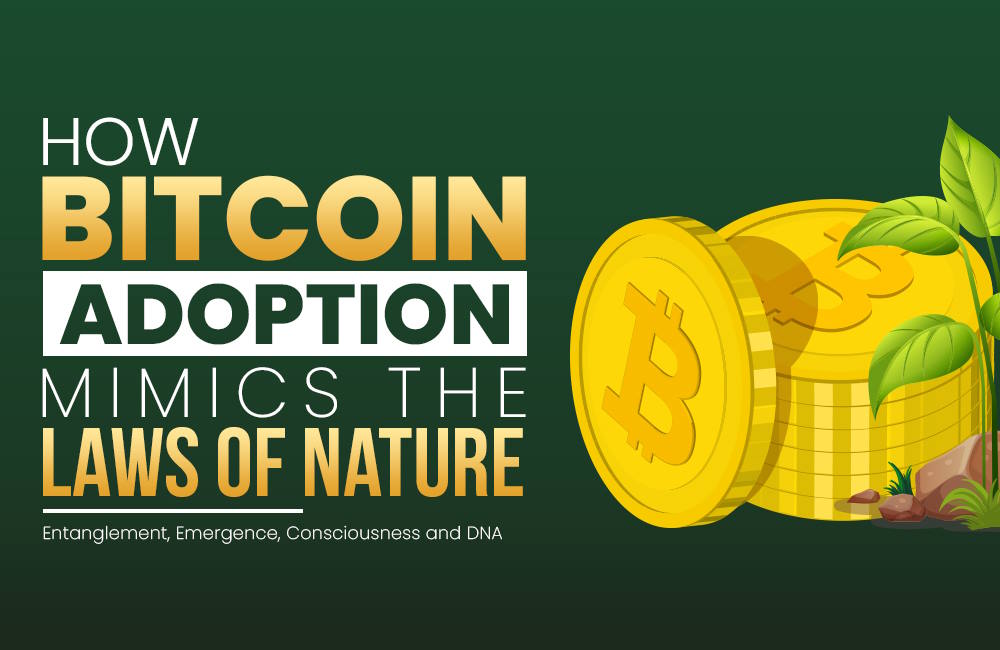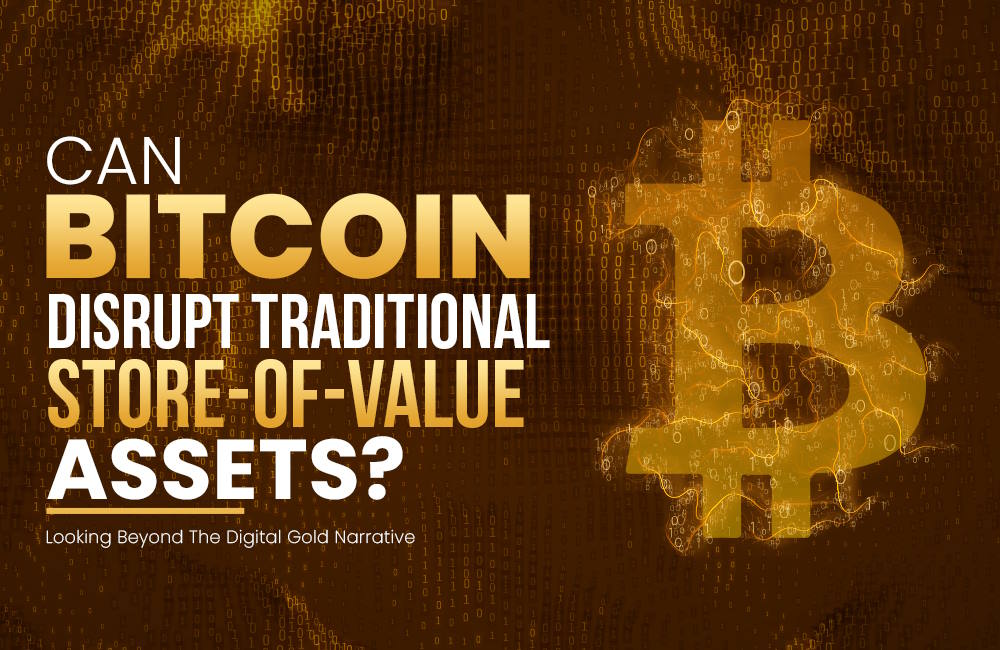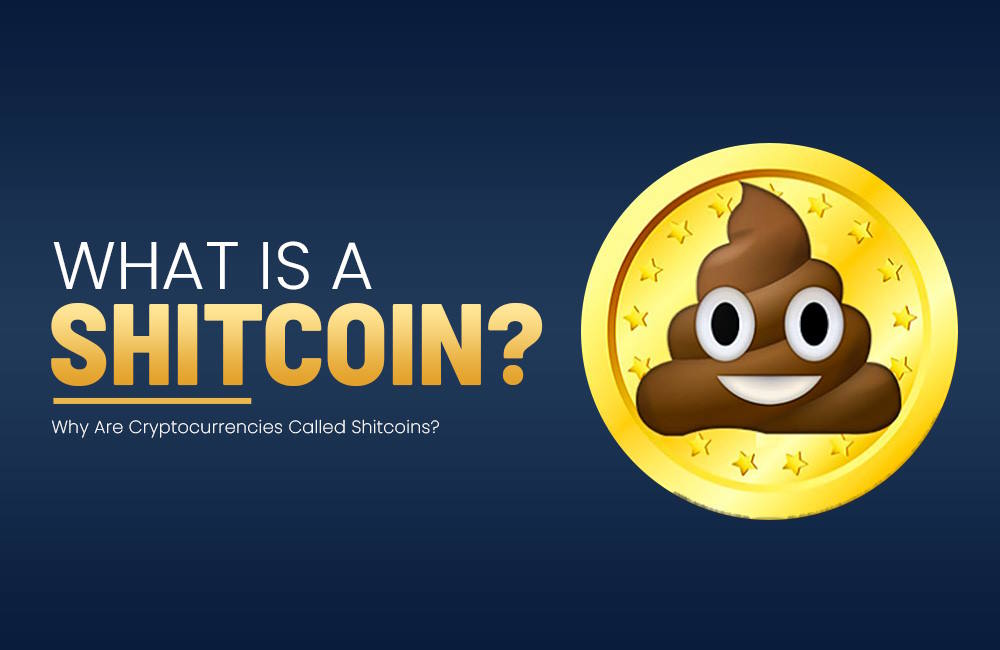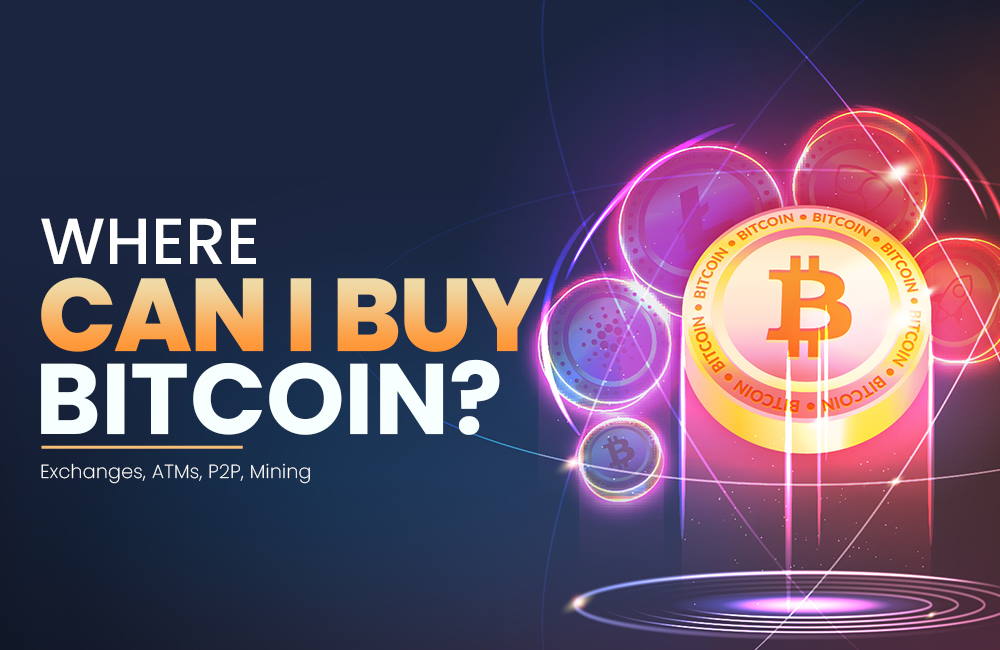
What we're talking about:
Where Can I Buy Bitcoin?
So you’ve given it some thought and you’re finally ready to go down the rabbit hole and get yourself some bitcoin. There’s only one thing stopping you now: where do you go to buy bitcoin?
By now there are plenty of options out there providing you with access to digital coins. Let’s take a look at four of the most popular options and weigh up the pros and cons of each method.
Bitcoin Exchanges
An exchange is a privately-owned company that facilitates the buying and selling of cryptocurrencies, including bitcoin. However, there are two main types of exchanges: crypto exchanges and bitcoin-only exchanges like Swan and River.
Crypto exchanges allow users to buy and sell a variety of cryptocurrencies, while bitcoin-only exchanges specialize in facilitating bitcoin transactions exclusively. Both types of exchanges act as intermediaries between buyers and sellers, earning money through commissions and transaction fees.
Some popular examples of crypto exchanges include Coinbase, Kraken, and Binance, while Swan and River are notable bitcoin-only exchanges. It’s important to note that the features, fees, and supported cryptocurrencies can vary significantly between different exchanges.
Pros
- Convenience: perhaps the biggest attraction to exchanges is that they’re a convenient place to buy bitcoin. Both new and existing traders can buy and sell bitcoin via their laptops and mobile devices from anywhere in the world. All you have to do is sign up, log in to your account and carry out transactions via their apps or user-friendly websites.
- Responsibility: another feature that Bitcoin exchanges provide to new users are custodial wallets that hold the bitcoin for you. Exchange platforms offer extra levels of security, allowing you to safely log in to your account, view your balance and trade bitcoin without the responsibility of securing your own seed phrase. Depending on where you are in your Bitcoin journey, holding your assets on an exchange could be seen as a con because of the risk of hacks, confiscation, exchange insolvency and similar.
Cons
- Time: exchanges make it pretty straightforward to buy bitcoin, but the transaction approval process may take more time than you’d like. This is because with some exchanges, it can take 3-5 business days for your newly bought bitcoin to arrive in your wallet. For a deeper explanation, check out Coinbases’s help page on what to expect when buying a digital currency.
- Anonymity: Bitcoin exchanges are required to follow Know Your Customer (KYC) standards which will require you to provide your personal information in order to use their platforms. This means that you’re subject to their privacy policies, terms and conditions, and could be sacrificing a significant amount of self-sovereignty.
- Hacking risk: centralized exchanges are obvious targets for hackers due to the substantial size of assets they manage. Depending on the particular exchange’s terms and conditions, such thefts could result in the loss of customer funds. The most famous example is Mt. Gox, which was once the largest online exchange before it collapsed. In 2014 hackers stole a whopping 850,000 bitcoin, a catastrophic event whose economic and legal repercussions are still being felt to this day.
Bitcoin ATMs
Bitcoin ATMs are standalone kiosks that allow you to buy bitcoin using cash or card. Users deposit fiat currency and the machines dispense bitcoin in return (or vice versa). You can find a Bitcoin ATM in your area by searching the Bitcoin ATM Map.
Pros
- Ease of use: Bitcoin ATMs have a familiar look and feel to traditional ATMs. With user-friendly on-screen directions, users shouldn’t have any problems following along to complete their transactions.
- Anonymity: Bitcoin ATMs may be the perfect option if you want to carry out anonymous transactions. Not all ATMs operate in the same manner, but some locations don’t require you to provide your ID or personal information and will accept cash as payment.
- Time: transactions are completed faster compared to online exchanges. In most instances, the satoshis will appear in your wallet minutes after you’ve made the purchase.
Cons
- Fees: transaction fees are a valid concern when it comes to using Bitcoin ATMs. The average purchase fees can vary greatly from under 10% to well beyond 20%. This is in stark contrast to the fees you can expect from a centralized exchange, which are often lower than 1%.
- Availability: unlike exchanges which are online in nature, ATMs are physical devices that need to be secured and maintained. Finding a nearby ATM may not always be so simple and if the ATM is located in a shop, your bitcoin shopping spree will be governed by the shop’s opening hours.
Bitcoin Mining
The purist’s way to acquire bitcoin is quite simple: go mine your own coins. With the addition of each new block to Bitcoin’s blockchain, new coins are released to the miners who helped encode the transactions. The emission of new coins is currently set to 6.25 bitcoins every ten minutes or so. This emission rate gets cut in half every 4 years, and will continue to do so until the last coin is predicted to be mined in 2140. Bitcoinmining.org is a good resource for those looking to dive deeper into the topic.
Pros
- Self-sovereignty: mining your own coins provides you with the highest level of anonymity, as no KYC requirements are necessary when setting up your mining hardware.
- Participation: the inclusion of additional mining rigs is extremely beneficial to the health of the Bitcoin ecosystem. With each new miner comes an increase in Bitcoin’s level of decentralization and its overall mining difficulty, making a 51% network attack less and less likely.
Cons
- Cost: mining has become an extremely expensive and competitive business to operate. When the network first launched, users could leave their laptops working overnight and wake up to hundreds of new coins. These days you’re up against giant warehouses packed full of dedicated equipment. Pooling your equipment and sharing the rewards is a viable option for smaller operators though.
- Energy concerns: like it or not, Bitcoin consumes energy. This is a critical component of its security model and helps in deterring bad actors from manipulating the consensus protocol. There is a wave of renewable-energy mining underway, but hobby miners may find it difficult to mine bitcoins given the rising cost in energy prices.
P2P Purchases
Finally, we have peer-to-peer (P2P) transactions. Technically speaking, this is a direct transaction involving two individuals trading a local fiat currency for bitcoin. Meeting a stranger in a carpark and handing over cash for coins could be considered a P2P transaction but luckily there also exist safer methods to transact with peers. Several online exchanges now facilitate P2P purchases and play a critical role in the trade by holding the funds in escrow until the trade requirements are met.
Pros
- Access: with the constant rise in dominance of the US dollar, several fiat currencies have become marginalized within online economies. Bitcoin’s permissionless currency enables a free market alternative for holders of these currencies and P2P purchases are quite often the only option available to them in order to buy bitcoin.
- Urgency: sometimes people don’t have time to wait for centralized services to process their requests. The recent migrant crisis in Eastern Europe highlighted many instances of bitcoin holders who used P2P trades to secure their escape route from the imminent threat of war.
Cons
- Safety: especially when it comes to meeting strangers. As with anything in life, people always need to be aware of scammers. If possible, try to find an alternative way to buy bitcoin other than handing over cash to strangers.
- Flagged coins: the chances are slim, but you might just end up with some coins that were previously used for illicit activity. As Bitcoin operates an immutable public ledger, the history of a coin’s transactions can be traced back to when it was first mined. Regardless of your innocence and good intentions, you could find yourself hampered with hassles when your P2P coins are refused by an exchange or a merchant. Ask yourself, why does the seller need to trade P2P?
The Bottom Line
Whether you desire anonymity, a profitable trade, or you want to contribute to Bitcoin’s decentralized hash rate, buying bitcoin has never been easier. Understanding where new bitcoin come from and how they make their way to exchanges and ATMs is the key to grasping the mechanics of this new digital economy.
With increased popularity however comes an increase in scams, so always be on your guard. Scammers are nothing more than opportunists who happen to be one step ahead of you with their knowledge. Staying up to date and learning the basics is your secret weapon to securing your assets from being lost.
What we're talking about:


